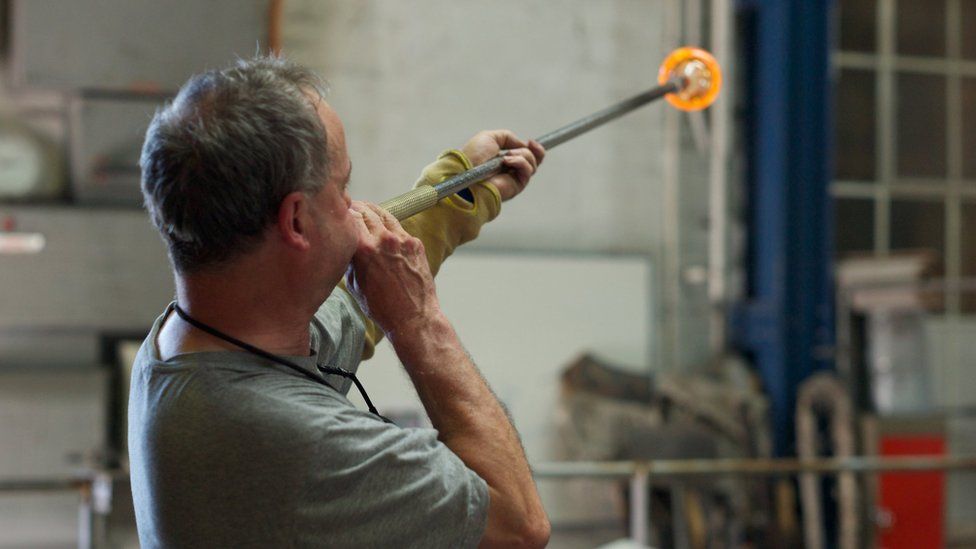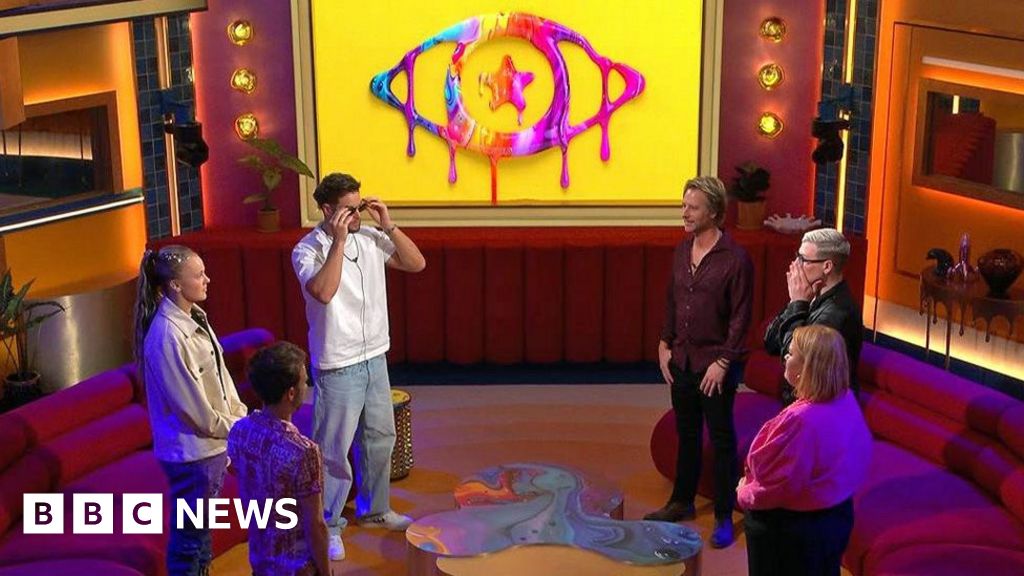ARTICLE AD BOX
 Image source, English Antique Glass Ltd
Image source, English Antique Glass Ltd
English Antique Glass in Birmingham was forced to stop production in 2022 due to reduced workshop space
By Leisha Santorelli
BBC News
Mouth-blown flat glass-making has "become extinct" in the UK in the last year, according to new research.
Charity Heritage Crafts said the restoration of historic stained glass in local churches and ancient buildings has to rely on pricey imports from France and Germany.
High energy prices and inflation have worsened the outlook.
Four other heritage crafts including handstitched cricket ball-making have disappeared completely from UK shores.
Over the last 15 years, the UK has also lost the capacity to make lacrosse sticks, handmade paper production - known as mould and deckle-making - harking back to the 18th Century and gold beating which suffered due to cheaper imports mostly from China.
A heritage craft is defined as "a practice which employs manual dexterity and skill at the point of production, an understanding of traditional materials, design and techniques, and which has been practised for two or more successive generations".
Skills under threat
The Red List of Endangered Crafts was first created in 2017 with the intention of raising awareness around disappearing traditional skills in the UK.
Thursday's report is the first update in two years and assessed a total of 259 crafts at risk of disappearing. Of those, 146 made it onto the Red List with 62 classified as critically endangered and 84 as endangered.
Image source, Cornwall Council/Guild of Cornish Hedgers
Image caption,Many Cornish hedges are thousands of years old, preserving field patterns and providing wildlife habitats
Five new crafts have been added to the critically endangered category which means they are on the verge of extinction because there are very few practitioners or trainees left for skills to pass on.
Among those newly added to the endangered category is Cornish hedging and marionette-making.
The effects of the COVID-19 pandemic, "continuing uncertainties around Brexit and structural issues relating to the funding for skills transmission" have been cited as among the main reasons for the decline.
A lack of mainstream appeal also means many craftspeople have to rely on niche markets overseas, which has contributed to the problem.
Heritage Craft warns that losing just one craft can lead to a negative knock-on effect on others.
Mary Lewis, who led the research, said: "We know that heritage craft skills operate like an ecosystem; if we lose one part it can have devastating consequences on other parts of the system."
King Charles appeared on a special edition of the Repair Shop last year featuring blacksmithing, stonemasonry and wood carving
The non-profit and advocacy body are calling for more government support, saying the UK has "fallen behind the rest of the world" when it comes to the safeguarding of intangible "living heritage" in the form of knowledge, skills and practices.
The UK is one of 12 Unesco members that have not yet ratified the 2003 Convention on the Safeguarding of Intangible Heritage.
However a few crafts have been able to move out of the critically endangered category due to a change in fortunes. One example is the making of shinty sticks, used in a traditional team game mostly played in the Scottish Highlands.
An Endangered Crafts Fund was also set up in 2019 to provide support to the most at-risk heritage crafts with 57 projects having been funded with grants of up to £2,000 ($1,263) each.
Related Internet Links
The BBC is not responsible for the content of external sites.

 1 year ago
56
1 year ago
56








 English (US) ·
English (US) ·